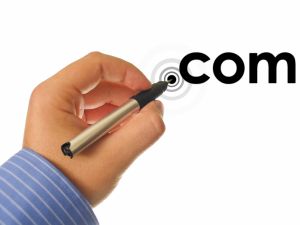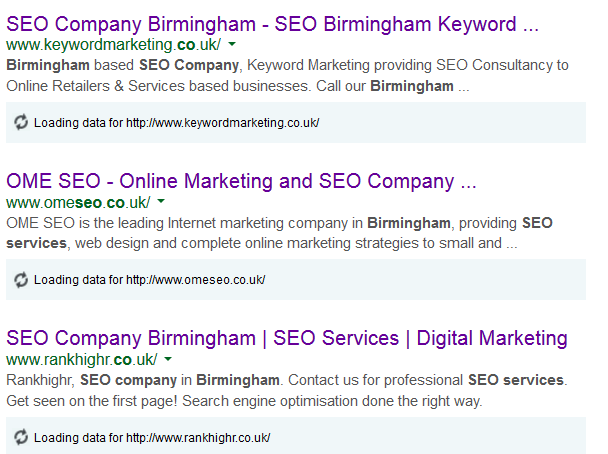10 Smart Ways to Pick the Right Domain Name for Your Website
 Picking a domain name is choosing your identity on the web. It is important to get this right, as it will be a part of your brand and therefore your business. This is how your clients and prospects will find you, and is the name that will be passed on to others when somebody talks about you. Selecting the right domain name can hugely impact on your online presence and ultimately your business, regardless of whether you are selling a product, a service or an idea.
Picking a domain name is choosing your identity on the web. It is important to get this right, as it will be a part of your brand and therefore your business. This is how your clients and prospects will find you, and is the name that will be passed on to others when somebody talks about you. Selecting the right domain name can hugely impact on your online presence and ultimately your business, regardless of whether you are selling a product, a service or an idea.
So, how do you choose the right domain name? There are a multitude of factors to consider and a lot of ideas to brainstorm, thus making it a daunting process. However tedious it may be, though, you need to put a bit of effort so into this process. According to a survey carried out in January 2015, there are 861 million active websites. Imagine your website being part of that, and think how easy it would be to get lost in the clutter. To ensure that your clients are not misled and taken to another website, follow this guide on how to buy the right domain name for your website.
-
Keep It Short and Simple
When deciding on a domain name, it is important that your visitors won’t have a hard time remembering your choice. Avoid using words that may be difficult to spell. Aside from being easy to spell out, your domain name should also be easy to pronounce. Ensure that the name you choose is short; a domain name can contain up to 63 characters, but we don’t suggest you max that out. Ideally, you are looking for one or two words, maybe three if absolutely necessary. The key is for it to be short and simple. If your chosen name is too long, it’s bound to be forgotten.
-
No Hyphens or Numbers
Hyphens make it harder for people to recall your domain name, so you should avoid having one at all costs. If your existing business name is already taken, do not resort to this strategy. Be creative and you will come up with the perfect domain for you. Having hyphens in your domain name can also be awkward to verbalize for clients, as can numbers. Furthermore, if you use a domain that contains a hyphen and your competitor has the same domain name but without the hyphen, then it’s likely that many people will inadvertently end up on your competitor’s website instead of yours. As for using numbers, only do this if it’s absolutely essential. You will also then have to consider that when telling people your domain name you will constantly be telling people whether the number part is spelt out as a word or in digits.
-
Exact Match Domain is Out
EMD (Exact Match Domain) update is a filter launched by Google to avoid sites ranking higher in search results just because they contain an exact word match. This means that you don’t have to desperately seek a domain that precisely matches your business name, or products/services that you may be supplying. You can use other SEO strategies aside from domain name and still rank well. On the other hand, if you manage to get the domain name that exactly matches your business name or target keyword, this doesn’t necessarily mean that you will have a good positioning in search engine results. Having said that, visually the domain may appear more relevant to people if it contains the words that most accurately describe your product or service.
-
Consider Your Extension
A .com is definitely the king of extensions, as it is not country specific. The .net and .org also seem to be popular too, but have never overtaken .com in popularity. However, there are other options you can go with, and some might be particularly relevant if you are targeting a specific location, such as .co.uk for a business that primarily trades within the United Kingdom. According to Moz, 67% of online marketers spend time on local search – this means the local search market is looking good and is a great point to target. One benefit of having a local extension is this ability to target local customers. For example, if someone is using Google.co.uk, which is Google for the United Kingdom, when they carry out a search most of the results listings would show websites with a .co.uk extension. As a test, go to Google.co.uk and search for “seo company birmingham”, you might see the following listings – note, most of these have a .co.uk domain extension (like www.keywordmarketing.co.uk):

-
Don’t Be a Copy Cat
Avoid using a domain that is a plural or misspelled version of an existing brand, particularly if it’s a popular site. Build a name for yourself and your business by choosing a domain that is used by you and you alone. On the other hand, if you become more popular than the site with the correct spelling, your visitors may end up visiting the wrong site and will have a hard time figuring out what your domain name really is. Try typing several versions of your domain idea into a search engine to see if there’s a hit. Aside from problems with traffic and search rankings, misspelling existing brand names can be illegal and may lead to copyright complaints. Visit copyright.gov and search for your desired domain to avoid this headache. Furthermore, ensure you are legally allowed to trade under that domain name. For example, if there is already a company out there which actually trades under the domain name you wish to purchase, you may get some unnecessary legal letters coming your way.
-
Buy Domains Similar to Yours
Bearing the above issues in mind, you should also consider buying any domains that might be mistaken for yours. For example, if you are planning to use ilovejellybean.com, it would be ideal to buy ilovejellybeans.com, or even other extensions such as ilovejellybean.net or .co.uk. A great example of this is flickr.com, which now also owns flicker.com and uses it as redirect. Another is Bing.com and Bings.com, who have the same owner. Once you gain traction and build your reputation, other people buying domains similar to yours can cause quite a few problems, as they may begin to benefit from traffic that should otherwise be going to your website.
-
Set Expectations
When someone sees or hears your domain name, they should be able to get a fairly accurate idea of what your website is all about. Your domain should communicate and represent your business before a customer even arrives at your site. You should therefore brainstorm domain ideas around your industry and choose appropriately. While EMDs are no longer a significant help in terms of search result rankings, it is still a good idea to incorporate a keyword that is significant to you and your business. This can increase the likelihood of your site being clicked through to by users. Just make sure this is relevant and doesn’t require users to guess what your website is about.
-
Consider the Way it Looks
As mentioned above, your domain name should be easy to spell. This being said, it is also wise to avoid domains that contain two or three of the same letter consecutively, as this frequently leads to spelling confusion for users. So, Markkeys.com or similar domains are not a good idea. Another thing you should really look at is the way certain words might blend in to each other and become hard to distinguish.
-
Brainstorm
Once you have an idea for your business name or your domain, of course you need to check whether it is available. If it’s already taken, you can always modify it by using another word combination, using synonyms or other factors. It is ideal here to use several tools to help you in the brainstorming process; these can help you to come up with a domain related to your first choice or somewhat similar. Also, don’t forget to be creative with choosing a domain. This infographic by Entrepreneur.com has some great examples of mixing and combining words, suffixes and prefixes to come up with an original domain name.
-
If You Want a Domain So Badly
There may be times when the domain name that you badly want or need is already taken, but you just can’t take no for an answer. This sometimes happens when a brand has already been established offline, and the desired domain is taken, but not active. What you can do here is communicate with the owner of that domain. You can also run a ‘WHOIS’ to make arrangements with the owner. WHOIS is a database containing a searchable list of every domain currently registered, and can be used to obtain phone numbers, addresses and names of the person who registered the domain. You can do this with the help of accredited registrars such as godaddy.com or hostgator.com
Where to buy domain names?
There are a number of places where you can find and purchase domain names. Some of these include:

